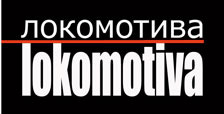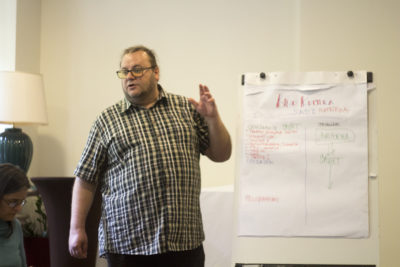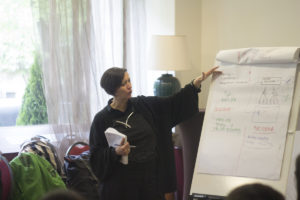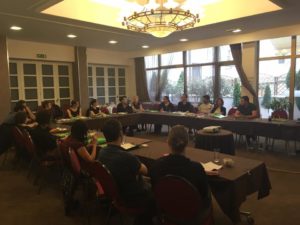General Information
Place: Belgrade, Hotel Park (Njegoševa 2)
Date: 27.04 – 29.04.2017.
Organizers: Jelena Šantić Foundation (Beograd), Lokomotiva – Centre for New Initiatives in Arts and Culture (Skopje), Loose Associations /Slobodne veze/, contemporary art practices (Zagreb)
Supported by: European Cultural Foundation and the Ministry of Culture and Information of the Government of Serbia
Working languages: English, Serbian and Croatian
About the project
The Dissonant (Co)Spaces is a collaborative project by three regional CSO’s: Lokomotiva from Skopje, Foundation Jelena Santic from Belgrade and Loose Associations (Slobodne veze) from Zagreb.
The project aims to reflect possibilities for reaffirming derelict, abandoned or “in between” spaces (due to the unresolved ownership status or other issues) created within different socio-political and spatial paradigm, by exploring both what those spaces can denote today as well as their potential for inclusion and civic participation through public debate, arts and culture.
This project is seen as an attempt to question and explore current processes of history and space-making while preserving some of the common values and memory through developing new spaces for culture that will promote openness, horizontality, solidarity and inclusion. Our aspirations are towards reactivating and re-making the spaces by producing new content, while preserving memory layers and developing discursive field in which they will be reflected.
Goals of the workshop
Workshop Modeling the public in dissonant co-spaces is one of the activities of The Dissonant (Co)Spaces, and its aim is to contribute to development of the governing models of these specific spaces in collaboration with various professionals in field of cultural management, sustainable development, cultural policy, political theory, economy, cultural heritage, architecture, etc. We will offer an insight into the three concrete cases (Pionirski Grad, Belgrade; Motel Trogir, Trogir and Kino Kultura, Skopje) and work on the potential for future development of the three specific spaces/sites, having in mind the diverse context, socio-political, economic and normative frameworks as well as preservation of the memory layers of the of cultural heritage.
Additionally, through this workshop, we would like to try to articulate the following issues: what does the term “dissonant heritage” mean today, how is it perceived by the broader public; which of the examples of the 20th century architectural and cultural heritage could be recognized as worth saving, which of the values they implicitly bear, are important in larger socio-political and cultural context today and how those spaces could be reaffirmed through cultural and artistic initiatives (among others).
AGENDA
DAY ONE April 27th, 2017
Arrival of participants, gathering in the hotel until 14.30
14.30 – 15.00 Registration of participants
- – 15.10 Welcome speech, Irina Ljubić (Foundation Jelena Šantić)
- – 16.10 Presentation of the first results of researches
- Pioneer City, Belgrade (Foundation Jelena Šantić)
- Motel Trogir, Trogir (Loose Associations)
- Kino Kultura, Skopje (Lokomotiva)
16.10 – 16.30 Coffee Break
16.30 – 17.15 New tendencies and conceptualization of new models of cultural spaces in actual socio-political contexts, moderator (Foundation Jelena Šantic)
- Temporary Use of Public Spaces / challenges and good practice Iva Čukić (Serbia)
- Cultural policies and spaces of cultural production Ana Žuvela (Croatia)
17.15 – 18.00 Discussion
18.00 Dinner
DAY TWO April 28th, 2017
9.00 – 11.00 Study trip to Pioneer City (Kosutnjak)
11.00-12.00 Introduction of participants, work in groups that is focused on the managing, usage and functioning of concrete spaces
12.00 – 12.15 Coffee Break
12.00 – 18.00 Work in groups that is focused on the managing, usage and functioning of concrete spaces:
12.00 – 13.30 group work
13.30 – 14.30 lunch
14.30 – 18.30 – group work (refreshments and breaks according to the group dynamics)
19.00 Dinner
DAY THREE April 29th, 2017
10.00 – 12.30 Presentation of 3 groups and discussion
11.15 – 11.30 Coffee break
12.30 – 13.00 Conclusions and future plans
13.00 Lunch



